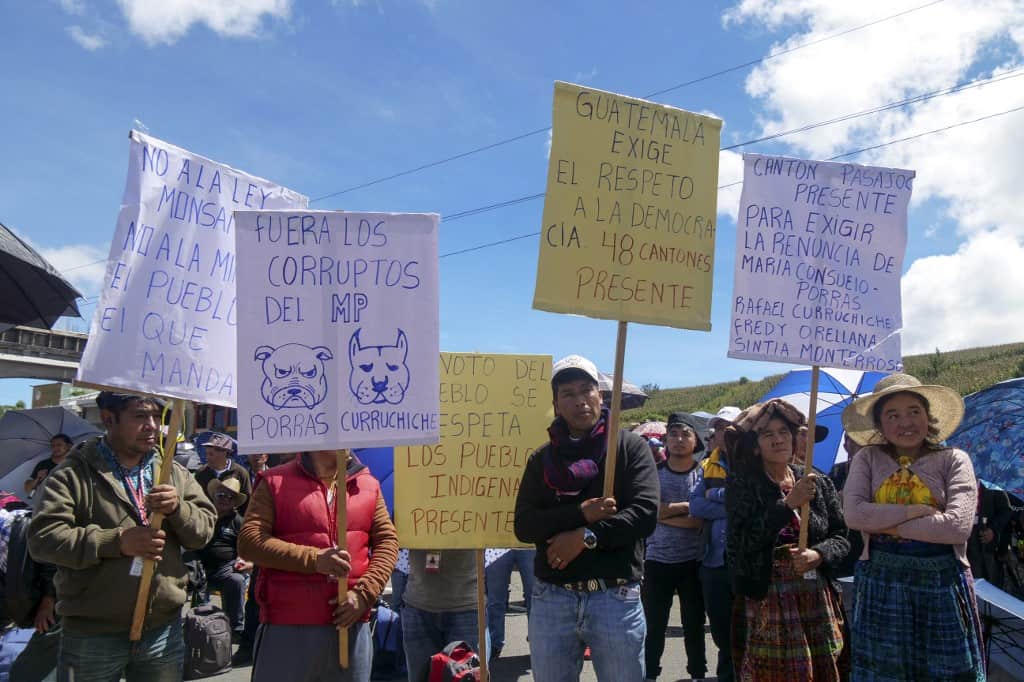Groups of Indigenous protesters blocked highway sections in Guatemala on Monday to demand the resignation of the Attorney General accused of fabricating an alleged coup d’état to prevent the elected president, the social democrat Bernardo Arévalo, from taking office.
The groups, mostly indigenous and peasant, have closed at least 17 sections of major highways in the country such as the Inter-American Highway, as well as those leading to the borders with Mexico, El Salvador and Honduras, according to the state General Direction of Protection and Road Safety.
The raids on the headquarters of the electoral tribunal to seize the records of past elections, the request to remove legal immunity from the magistrates of that body and the attempt to cancel Arévalo’s Semilla party have caused concern and rejection in the international community.
The protests and roadblocks were called for by the communal mayors of the 48 townships of the department of Totonicapán, west of the capital, demanding the resignation of Attorney General Consuelo Porras. Other sectors have joined the call.
Protesters have also blocked two entrances to Guatemala City and will protest at the headquarters of the Public Ministry (Prosecutor’s Office).
In addition, the entities demand the removal from office of prosecutor Rafael Curruchiche and judge Fredy Orellana, who are waging a legal crusade considered a “coup d’etat” by president-elect Arévalo.
The three officials are included on a United States list of “corrupt actors” and anti-democrats.
The legal onslaught began after Arévalo came in second in the general elections on June 25 and went to a runoff that he won on August 20 against former first lady Sandra Torres.
On Friday and Saturday, prosecutors under Curruchiche’s command and with an order from Orellana, amid scuffling, seized the electoral records, provoking strong condemnation from the United States, which stated that it “undermines” the peaceful transition of power.
In a statement, the 48 townships insist that the measure is due to the fact that judicial officials have taken “arbitrary actions that threaten democracy and the people’s constitutional autonomy and order.”
The Organization of American States (OAS), the United States, Spain, the European Union and international organizations have expressed their rejection of the criminal persecution because they consider it an attack on democracy and governance in this nation.
In the face of the roadblocks, the Interior Ministry said in a statement that it instructed the National Civil Police to use force to dissolve the measures, although they must analyze to “not endanger the physical integrity of those who intervene.”






